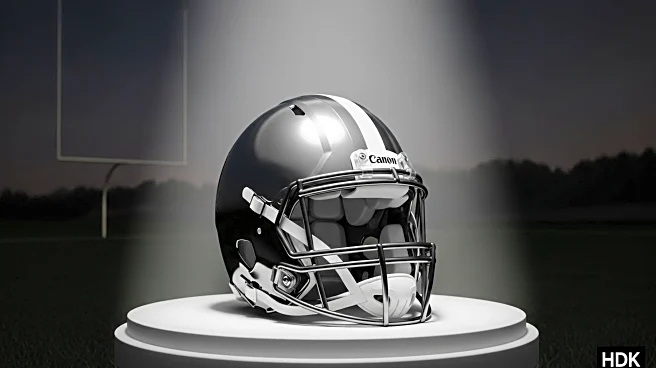What's Happening?
Stanford University has announced a significant $50 million donation to its football program from Bradford Freeman, a former player and alumnus. This contribution is aimed at revitalizing the program under the leadership of general manager Andrew Luck. The funds will be allocated to cover five new football scholarships and support name, image, and likeness (NIL) payments for athletes. Freeman, who graduated in 1964, has a long-standing relationship with Stanford, having previously endowed the head football coaching position and contributed to the Freeman Spogli Institute for International Studies. The donation is expected to enhance Stanford's ability to recruit top talent and compete at a high level, benefiting the entire athletics department.
Why It's Important?
The $50 million gift is a transformative investment for Stanford's football program, which has struggled in recent seasons, finishing 3-9 in each of the past four years. The financial boost will help the program attract and retain talented athletes, reinforcing Stanford's reputation as a leading institution for scholar-athletes. The donation also underscores the growing importance of NIL payments in collegiate sports, providing Stanford with a competitive edge in this evolving landscape. Beyond football, the gift is anticipated to have a positive impact on all 36 varsity sports at Stanford, promoting overall athletic excellence and enhancing the university's ability to compete nationally.
What's Next?
Stanford's football team, currently 2-3 under interim coach Frank Reich, is set to visit SMU for their next game. The program will likely focus on leveraging the new funds to improve recruitment strategies and enhance player support systems. As the college sports environment continues to evolve with NIL considerations, Stanford's proactive approach may influence other universities to seek similar financial backing to remain competitive. The broader athletics department will also benefit from the increased resources, potentially leading to improved performance across various sports.
Beyond the Headlines
This donation highlights the role of alumni contributions in shaping the future of collegiate sports programs. It raises questions about the sustainability of relying on large gifts for program success and the ethical considerations surrounding NIL payments. The move may prompt discussions on how universities balance academic integrity with athletic competitiveness, especially as financial incentives become more prevalent in college sports.










